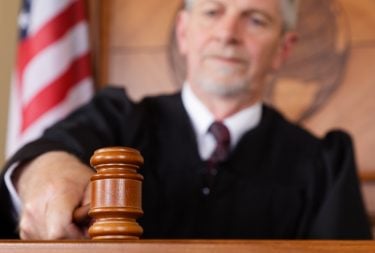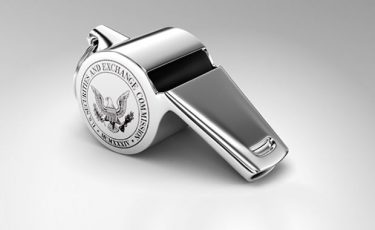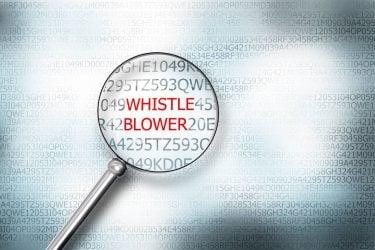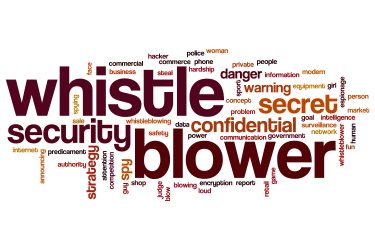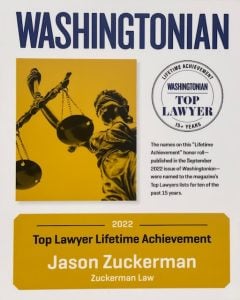SEASONED AND EFEECTIVE WHISTLEBLOWER REWARDS AND WHISTLEBLOWER RETALIATION ATTORNEYS






Recently the Association of Certified Fraud Examiners published a profile of SEC whistleblower lawyers Matt Stock’s success working with whistleblowers to fight fraud:
For more information about the SEC Whistleblower Program, see our Whistleblower Page and download the eBook Tips from SEC Whistleblower Attorneys to Maximize an SEC Whistleblower Award. Click below to hear an SEC whistleblower lawyer’s tips for SEC whistleblowers:
Resources About SEC Whistleblower Program
- What is the SEC Office of the Whistleblower?
- What are the largest SEC whistleblower awards?
- Can I submit a tip anonymously to the SEC Office of the Whistleblower?
- What exactly does anonymous whistleblowing entail?
- What employment protections are available for SEC whistleblowers?
- What violations qualify for an SEC whistleblower award?
- Can the SEC bring enforcement actions against international schemes?
- Who is an “eligible” SEC whistleblower?
- Can compliance personnel, auditors, officers or directors qualify for SEC whistleblower awards?
- Can I submit a claim if I had some involvement in the fraud or misconduct?
- Can culpable whistleblowers qualify for SEC whistleblower awards?
- Do I have to report a potential violation to my company before reporting it to the SEC?
- What type of evidence should I provide to the SEC?
- Can I use confidential company documents to expose fraud?
- Can I disclose secret recordings to the SEC?
- Can I submit a tip if I agreed to a confidentiality provision in an employment/severance agreement?
- When is the best time to report the fraud or misconduct to the SEC?
- What is “original information”?
- Can I submit an SEC Whistleblower claim if the SEC already has an open investigation into the matter?
- How might my information “lead to” a successful SEC enforcement action?
- What “related actions” qualify for an SEC whistleblower award?
- How do the best SEC whistleblower law firms advocate for whistleblowers?
- How do I choose the best whistleblower attorney?
- Why should I choose the Zuckerman Law to represent me in my SEC whistleblower claim?
- How do I submit a tip to the SEC Office of the Whistleblower?
- What happens after I submit a tip to the SEC Office of the Whistleblower?
- What is the full process for a whistleblower to receive an award?
- What factors does the SEC consider when determining the amount of the award?
- What happens after I apply for an SEC whistleblower award?
- What is the process to appeal the SEC’s award determination?
- How long does it take to receive an SEC whistleblower award?
Dallas Hammer
Summary
Dallas Hammer is a Principal at Zuckerman Law and leads the firm’s cybersecurity whistleblower practice and Virginia employment practice. Recently the Wall Street Journal quoted Dallas Hammer in an article titled Cybersecurity Whistleblowers Are Growing Corporate Challenge.
He has broad experience litigating whistleblower retaliation, discrimination, and employment-related disputes
-
Professionalism
(5)
-
Ethical
(5)
-
Honesty
(5)
Overall
User Review
( votes)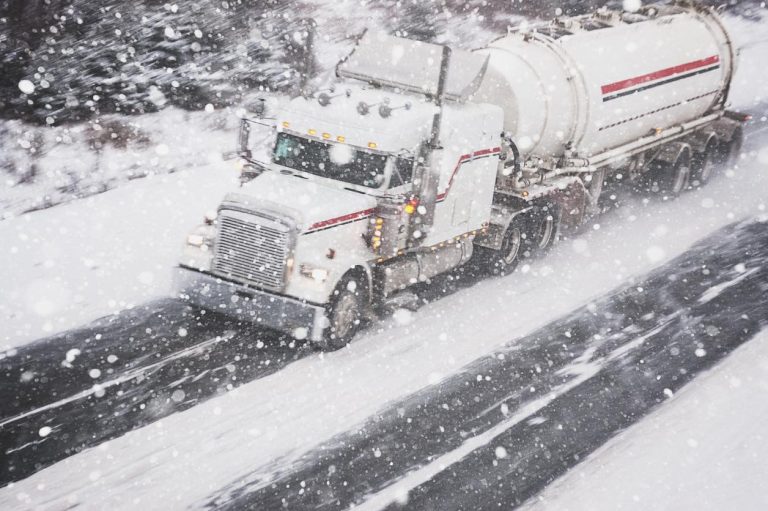
The whistleblower protection provision of the Surface Transportation Assistance Act (“STAA”) protects truck drivers from retaliation where they engage in protected whistleblowing, which includes:
- Refusing to operate a vehicle because: (i) The operation violates a regulation, standard, or order of the United States related to commercial motor vehicle safety, health, or security; or (ii) He or she has a reasonable apprehension of serious injury to himself or herself or the public because of the vehicle’s hazardous safety or security condition;
- Accurately reporting hours on duty; or
- Cooperating with a safety or security investigation by the Secretary of Transportation, the Secretary of Homeland Security, or the National Transportation Safety Board; or
- Furnishing information to the Secretary of Transportation, the Secretary of Homeland Security, the National Transportation Safety Board, or any Federal, State, or local regulatory or law enforcement agency as to the facts relating to any accident or incident resulting in injury or death to an individual or damage to property occurring in connection with commercial motor vehicle transportation.
In two recent cases, truck drivers prevailed where they were terminated for refusing to drive a damaged truck and refusing to drive while on prescription medication.
Proving a Trucking Safety Whistleblower Protection Claim
A trucking whistleblower must prove the following to prevail in a STAA whistleblower retaliation claim:
- The employee engaged in protected conduct;
- The employer was aware of the protected whistleblowing;
- The employer took an adverse action; and
- The protected whistleblower was a contributing factor in the employer’s decision to take the adverse action.
Prohibited STAA Whistleblower Retaliation
STAA proscribes a wide range of retaliatory adverse actions, including discharging, disciplining or discriminating against a whistleblowing employee regarding pay, terms or privileges of employment. Examples include blacklisting, termination, suspension, demotion, reduction in salary, failure to hire, or any act that would deter a reasonable person from engaging in protected activity.
Remedies Available to Prevailing Trucking Industry Whistleblowers
A prevailing trucking industry whistleblower can recover:
- Reinstatement,
- Lost wages and benefits,
- Damages for emotional distress and anguish, humiliation, harm to reputation, and other non-economic harms,
- Attorney fees and litigation costs, and
- Punitive damages up to $250,000.
Recently, a truck driver was awarded $150,000 after he was fired for refusing to drive in unsafe weather conditions.
In Fink v. R&L Transfer, Inc., the ARB affirmed an award of compensatory damages in the amount of $100,000.00, and punitive damages in the amount of $50,000 to a truck driver who was terminated for refusing to drive in unsafe winter weather conditions.
How to File a Trucking Safety Whistleblower Retaliation Action
A STAA whistleblowing complaint must be filed initially with the Occupational Safety and Health Administration (OSHA) within 180 days of when the whistleblower knew or should have known of the retaliatory action.
The whistle-blower protection provision of the STAA provides a strong remedy for whistleblowers in the trucking industry. To learn if you have a potential STAA whistleblower retaliation claim, call the Zuckerman Law Whistleblower Protection Help Line at 202-262-8959 or email [email protected].

Are whistleblowers in the nuclear industry protected against retaliation?
Section 211 of the Energy Reorganization Act (ERA) protects employees who disclose concerns about nuclear safety or a violation a Nuclear Regulatory Commission (NRC) rule or regulation.
To learn more about whistleblower protections, call the whistleblower lawyers at Zuckerman Law at 202-262-8959, or click here.
Protected Nuclear Safety Whistleblowing
The ERA whistleblower anti-retaliation provision protects employees in the nuclear industry for engaging in protected whistleblowing, including:
- Raising concerns about nuclear safety;
- Refusing to engage in activities prohibited under either the ERA or AEA provided the employee has identified the alleged illegality;
- Testifying before Congress or at any Federal or State proceeding regarding any provision of the ERA or the AEA;
- Commencing or causing to be commenced a proceeding under or the enforcement of the ERA or AEA, or testifying in any such proceeding; or
- Assisting or participating in any other action to promote nuclear safety.
The ERA protects disclosures to an employer and disclosures to the NRC. Click here to report a safety or security concern directly to the NRC.
Prohibited Retaliation Against Nuclear Safety Whistleblowers
Section 211 of the ERA prohibits a broad range of retaliatory actions, including termination, harassment, suspension, demotion, blacklisting/refusal to hire, and any act that would dissuade a reasonable person from engaging further protected activity.
Recently, OSHA awarded $260,000 to a nuclear whistleblower who was wrongfully terminated after reporting safety concerns concerning a construction project at the Wolf Creek Generating Station, including breaches of minimum soil coverage requirements for emergency service water piping.
Proving ERA Whistleblower Retaliation
To prevail on an ERA whistleblower complaint, a complainant must prove by a preponderance of the evidence that the complainant’s protected whistleblowing was a contributing factor in the adverse action. A common source of indirect evidence of retaliation is “temporal proximity” between the protected whistleblowing and the adverse action. The closer the temporal proximity, the greater the causal connection there is to the alleged retaliation.
If the complainant’s protected activity was a contributing factor in the adverse action, the employer may avoid liability only if it demonstrates by clear and convincing evidence that it would have taken the same unfavorable personnel action in the absence of the protected whistleblowing. This is known as the “same decision defense.” To assess whether an employer has proven that defense by clear and convincing evidence, DOL evaluates the following factors: (1) whether the employer’s evidence meets the plain meaning of “clear” and “convincing”; (2) whether the employer’s evidence indicates subjectively that the employer “would have” taken the same adverse action; and (3) whether facts that the employer relies on would change in the “absence of” the protected activity.”
Remedies for Prevailing Nuclear Safety Whistleblowers
A prevailing nuclear whistleblower can obtain:
- Reinstatement,
- Lost wages,
- Damages for emotional distress and anguish, humiliation, harm to reputation, and other non-economic harms, and
- Attorney’s fees.
In Hobby v. Georgia Power Co., the Administrative Review Board affirmed an award of $250,000 in compensatory damages for emotional distress, humiliation, and loss of reputation.
Filing an ERA Whistleblower Retaliation Complaint
An ERA whistleblowing complaint must be filed initially with the Occupational Safety and Health Administration (OSHA) within 180 days of when the whistleblower knew or should have known of the retaliatory adverse action.
Licensee Duty to Maintain Safety Conscious Work Environment
The NRC has published guidance for licensees emphasizing the importance of maintaining safety-conscious environments in which employees feel free to raise safety concerns, both to their management and to the NRC, without fear of retaliation. In particular, the NRC has articulated the following expectations:
- Employers licensed by the NRC must have processes in place for employees to report safety concerns;
- Subcontractors have the same responsibilities as licensed entities;
- Senior management must involve themselves to the extent necessary to ensure all safety concerns are addressed; and
- Employees have a responsibility to raise safety concerns with their employer, and a right to bring concerns to the NRC if the employer fails to address them.
The NRC’s “Guidance for Establishing and Maintaining a Safety Conscious Work Environment” is available here.
The whistle-blower provisions of the ERA provide a strong remedy for whistleblowers in the nuclear energy industry. To learn if you have a potential whistleblower retaliation claim, call the Zuckerman Law Whistleblower Protection Help Line at 202-262-8959 or email [email protected].
For more information, go to Whistleblower Protection in the Nuclear Industry
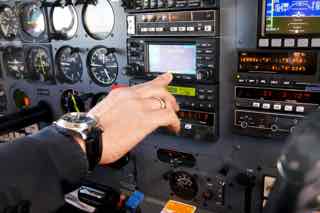
Are whistleblowers in the airline industry protected against retaliation?
The AIR21 whistleblower law protects employees in the airline industry against retaliation for raising a concern about air carrier safety.
Since 2005, the AIR21 air safety whistleblower lawyers at Zuckerman Law have represented whistleblowers in the aviation industry in AIR21 whistleblower retaliation claims under Section 519 of the Wendell H. Ford Aviation Investment and Reform Act for the 21st Century (also known as “AIR21”).
To schedule a consultation with our experienced AIR21 air safety whistleblower lawyers, click here or call us at 202-262-8959.






Proving a Violation of AIR21 Whistleblower Protection Law
To prevail under the AIR21 whistleblower protection law, the whistleblower must prove:
- the employee engaged in protected whistleblowing;
- the employer was aware of the protected whistleblowing;
- the employer took an adverse action; and
- the protected whistleblowing was a contributing factor in the employer’s decision to take the adverse action.
A contributing factor is any factor which, alone or in combination with other factors, tends to affect in any way the outcome of the decision. Circumstantial evidence may include a wide variety of evidence, such as motive, bias, work pressures, past and current relationships of the involved parties, animus, temporal proximity, pretext, shifting explanations, and material changes in employer practices, among other types of evidence.
Once the complainant has proven these four elements, the employer may avoid liability only if it demonstrates by clear and convincing evidence that it would have taken the same adverse personnel action in the absence of the whistleblowing.
AIR21 protects an employee of a section 44704 or 44705 FAA certificate holder or a contractor, subcontractor, or supplier of such holder.
Protected Air Safety Whistleblowing Under AIR21
As amended by the Aircraft Certification, Safety, and Accountability Act, AIR21 protects whistleblowers against retaliation for:
- Disclosing a potential violation of any FAA order, regulation, or standard to an employer or the federal government;
- Commencing a proceeding related to a potential violation of an airline safety regulation; or
- Testifying, assisting, or participating in a proceeding related to a potential violation of an airline safety regulation.
Examples of AIR21 protected disclosures include:
- reporting a violation of the airline’s flight operations manual;
- disclosing that an aircraft is not in airworthy condition;
- identifying falsified FAI documentation (a violation of 14 C.F.R. §21.2(a));
- opposing a violation of 14 C.F.R. § 135.267(c), which limits pilots that conduct Part 135 operations from working more than 14 hours of duty time;
- reporting conduct that would result in “operating an aircraft in a careless or reckless manner so as to endanger the life or property of another”;
- reporting the use of an unsuitable part (a violation of 14 C.F.R. §3.5(c)(2));
- disclosing a violation of 14. C.F.R. 91.105(a)(1), which requires crewmembers to be at their stations and vigilant; and
- reporting that a pilot failed a line check, i.e., which triggers a requirement upon the carrier not to utilize the pilot until the pilot passes the line check.
FAA regulations on airplane safety can be found here.
“As a matter law, an employee engages in protected activity any time [h]e provides or attempts to provide information related to a violation or alleged violation of an FAA requirement or any federal law related to air carrier safety, where the employee’s belief of a violation is subjectively and objectively reasonable.” Sewade v. Halo- Flight, Inc., ARB No. 13-098, slip op. at 7-8 (Feb. 13, 2015). The “complainant must prove that he reasonably believed in the existence of a violation,” which entails both a subjective and an objective component. Burdette v. ExpressJet Airlines, Inc., ARB No. 14-059, slip op. at 5 (Jan. 21, 2016).
The complainant need not prove an actual violation of a regulation, order, or standard relating to air carrier safety, as long as the complainant’s belief in a violation is reasonable. Furland v. Am. Airlines, Inc., ARB No. 90-102, ALJ No. 2008-AIR-011, slip op. at 5 (ARB July 27, 2011). Also, the complainant need not convey his reasonable belief in order for it to be protected. See Newell v. Airgas, Inc., ARB No. 16-007, ALJ No. 2015-STA-6, slip op. at 11 (ARB Jan. 10, 2018).
Prohibited Whistleblower Retaliation Under AIR21 Whistleblower Law
The AIR21 whistleblower protection law prohibits a broad range of retaliatory acts that have a negative effect on the employee’s terms, conditions, or privileges of employment. This includes intimidating, threatening, restraining, coercing, blacklisting, or discharging a whistleblower.
An adverse employment action is one that would dissuade a reasonable worker from engaging in protected whistleblowing. Suspension without pay can dissuade an employee from engaging in AIR21 protected conduct, and is therefore an adverse employment action.
Subjecting an employee to a 15D psychological evaluation can be an actionable adverse action where it is selectively implemented or utilized in a retaliatory fashion.
The DOL ARB has held “that the intended protection of AIR 21 extends beyond any limitations in Title VII and can extend beyond tangibility and ultimate employment actions.” Williams v. American Airlines, ARB No. 09- 018, slip op. at 10-11 n.51 (Dec. 29, 2010)). The ARB views “the list of prohibited activities in Section 1979.102(b) as quite broad and intended to include, as a matter law, reprimands (written or verbal), as well as counseling sessions by an air carrier, contractor or subcontractor, which are coupled with a reference of potential discipline.” Williams, ARB No. 09-018 at 10-11. For example, “even paid administrative leave may be considered an adverse action under certain circumstances.” Id. at 14 (emphasis in original) (citing Van Der Meer v. Western Ky. Univ., ARB No. 97-078, slip op. at 4-5 (Apr. 20, 1998) (holding that although an associate professor was paid throughout his involuntary leave of absence, he was subjected to adverse employment action by his removal from campus).
Remedies for Airline Industry Workers in AIR21 Whistleblower Protection Cases
Under AIR21, a prevailing whistleblower can recover:
- Reinstatement;
- Lost wages and benefits;
- Compensatory damages for emotional distress and reputational harm; and
- Attorney fees and litigation costs.
A mechanic who was fired for reporting insufficient maintenance on ambulance helicopters was awarded $485,000 in damages, plus attorney’s fees.
An airline that filed a retaliatory defamation lawsuit against nine whistleblowers was ordered to withdraw its lawsuit and pay $7.9 million in damages to the employees.
In a decision finding that Delta violated the anti-retaliation provision of the AIR21 whistleblower protection law, Judge Morris awarded pilot Karlene Petit $500,000 in compensatory damages for emotional distress, humiliation, and reputational harm.
In early March 2022, the DOL ordered a private aviation provider to pay $958K to a former worker who suffered retaliation for reporting safety concerns. Investigators with the department’s Occupational Safety and Health Administration found that – after a former employee of Pegasus Elite Aviation Inc. in Calabasas reported safety issues that led to an onsite inspection – the company sent a falsified and negative Pilot Records Improvement Act report to the worker’s new employer, violating the whistleblower provision. The report led to the employee’s termination.
In Vieques Air Link, Inc. v. USDOL, No. 05-01278 (1st Cir. Feb. 2, 2006), the First Circuit affirmed a compensatory damages award of $50,000 for mental anguish where the complainant testified that he depleted his savings and struggled to support his wife and two infant children while he looked for a new full-time job following his termination.
How to File an AIR21 Aviation Safety Whistleblower Retaliation Claim
An AIR21 whistleblower retaliation complaint must be filed initially with the Occupational Safety and Health Administration (OSHA) within 90 days of when the whistleblower knew or should have known of the retaliatory adverse action.
In 2015, the FAA and OSHA entered into a Memorandum of Understanding to facilitate cooperation concerning enforcement of the whistleblower protection provisions in AIR21. The DOL and FAA both play a critical role in enforcing the whistleblower protection provision of AIR21. The FAA investigates complaints related to air carrier safety and enforces air safety regulations and issues sanctions to airmen and air carriers for non-compliance with these regulations.
Client Review of AIR21 Whistleblower Protection Lawyer
The following are reviews from airline safety whistleblower clients provided through Avvo:
- I couldn’t ask for a better guy than Dallas Hammer to put the airline’s feet to the fire. I had never heard of AIR21 until I had been retaliated against and educated myself with the help of Zuckerman Law website. Dallas correctly anticipated every move they made and we were in a position to have a very strong case. Dallas negotiated a severance that is far above the norm. I am very pleased with the outcome. Now I can move on with my life with plenty of time to find a better employer.
Top-Rated Airline Safety Whistleblower Protection Lawyers

We have extensive experience representing whistleblowers under a wide variety of corporate whistleblower protection laws. See our client testimonials by clicking here.
- U.S. News and Best Lawyers® have named Zuckerman Law a Tier 1 firm in Litigation – Labor and Employment in the Washington DC metropolitan area.
- Dallas Hammer has extensive experience representing whistleblowers in retaliation and rewards claims and has written extensively about cybersecurity whistleblowing. He was selected by his peers to be included in The Best Lawyers in America® in the category of employment law in 2021 and 2022.
- Described by the National Law Journal as a “leading whistleblower attorney,” founding Principal Jason Zuckerman has established precedent under a wide range of whistleblower protection laws and obtained substantial compensation for his clients and recoveries for the government in whistleblower rewards and whistleblower retaliation cases. He served on the Department of Labor’s Whistleblower Protection Advisory Committee, which makes recommendations to the Secretary of Labor to improve OSHA’s administration of federal whistleblower protection laws. Zuckerman also served as Senior Legal Advisor to the Special Counsel at the U.S. Office of Special Counsel, the federal agency charged with protecting whistleblowers in the federal government. At OSC, he oversaw investigations of whistleblower claims and obtained corrective action or relief for whistleblowers.
- Zuckerman was recognized by Washingtonian magazine as a “Top Whistleblower Lawyer” (2020, 2018, 2017, 2015, 2009, and 2007), selected by his peers to be included in The Best Lawyers in America® in the category of employment law (2011-2021) and in SuperLawyers in the category of labor and employment law (2012 and 2015-2021), is rated 10 out of 10 by Avvo, based largely on client reviews, and is rated AV Preeminent® by Martindale-Hubbell based on peer reviews
- We have published extensively on whistleblower rights and protections, and speak nationwide at seminars and continuing legal education conferences. We blog about new developments under whistleblower retaliation and rewards laws at the Whistleblower Protection Law and SEC Awards Blog, and in 2019, the National Law Review awarded Zuckerman its “Go-To Thought Leadership Award” for his analysis of developments in whistleblower law.
- Our attorneys have been quoted by and published articles in leading business, accounting, and legal periodicals, including The Wall Street Journal, Forbes, CNBC, MarketWatch, Vox, Accounting Today, Going Concern, Law360 – Expert Analysis, Investopedia, The National Law Review, inSecurities, Government Accountability Project, S&P Global Market Intelligence, Risk & Compliance Magazine, The D&O Diary, The Compliance and Ethics Blog, Compliance Week and other printed and electronic media.
To learn if you have a potential claim, call the whistleblower lawyers at Zuckerman Law at 202-262-8959.
ABOUT ZUCKERMAN LAW
Summary
We are a Washington, DC-based law firm that represents whistleblowers in whistleblower rewards and whistleblower retaliation matters and litigates discrimination claims on behalf of employees in the District of Columbia, Maryland, and Virginia. The firm is dedicated to zealously advocating on behalf of our clients to achieve justice and accountability.
-
Professionalism
(5)
-
Honesty
(5)
-
Perseverance
(5)
Overall
User Review
( vote)






